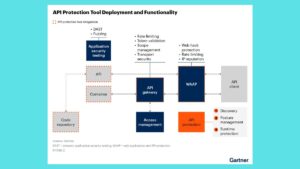6 Key Responsibilities of a Web3 HR Manager


The emergence of Web3 technologies is revolutionizing various industries, including Human Resources (HR). In this blog, we explore the critical responsibilities of HR managers in a Web3 environment, where decentralized systems, blockchain, and digital identities are reshaping traditional HR practices.
1. Embracing Decentralized Hiring Practices
Web3 HR managers are at the forefront of adopting decentralized hiring practices. They leverage blockchain technology to verify credentials, streamline candidate sourcing through decentralized talent platforms, and ensure transparent and efficient recruitment processes.
2. Managing Digital Identities and Privacy
In a Web3 ecosystem, HR managers oversee digital identity management. They implement protocols to safeguard employee data stored on decentralized networks, ensure compliance with privacy regulations (like GDPR), and educate employees on managing their digital identities securely.
3. Facilitating Remote Work and Decentralized Teams
With the rise of remote work and decentralized teams, Web3 HR managers foster collaboration and communication across geographies and time zones. They implement tools and protocols for remote onboarding, virtual team building activities, and effective management of distributed workforce dynamics.
4. Implementing Smart Contracts for HR Processes
Smart contracts are integral to Web3 HR operations. HR managers use smart contracts to automate and execute agreements related to employee compensation, benefits administration, performance reviews, and contractual obligations, ensuring transparency and efficiency.
5. Navigating Regulatory Compliance in Decentralized Environments
Web3 HR managers navigate complex regulatory landscapes associated with decentralized technologies. They stay updated on evolving regulations, implement compliance frameworks for blockchain-based HR processes, and collaborate with legal and compliance teams to mitigate risks.
6. Driving Cultural Transformation and Innovation
Web3 HR managers play a pivotal role in driving cultural transformation and fostering innovation within organizations. They promote a culture of adaptability to technological advancements, encourage experimentation with decentralized tools and platforms, and champion continuous learning and upskilling initiatives.
Conclusion: Embracing the Future of HR in Web3
As Web3 technologies continue to evolve, HR managers must adapt to the changing landscape by embracing decentralized practices, safeguarding digital identities, optimizing remote work environments, leveraging smart contracts, ensuring regulatory compliance, and fostering a culture of innovation. By embracing these responsibilities, Web3 HR managers can lead their organizations towards sustainable growth and success in the digital era.






